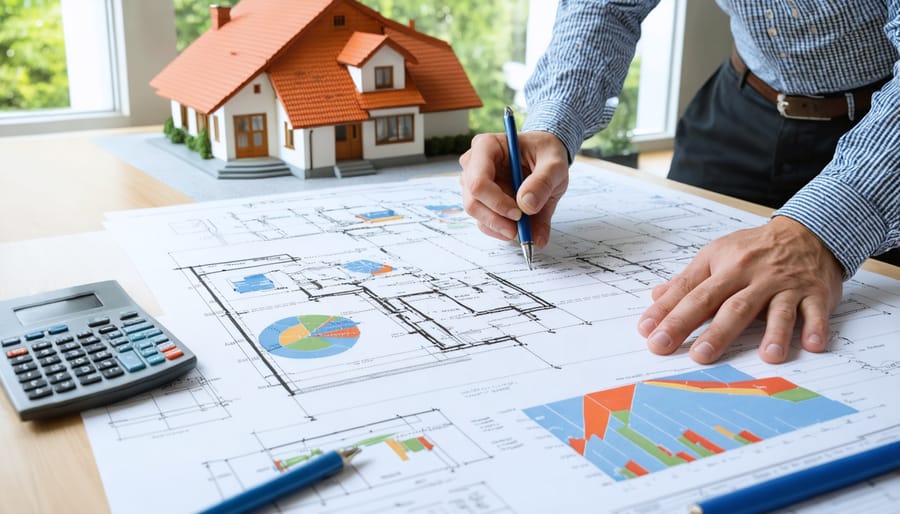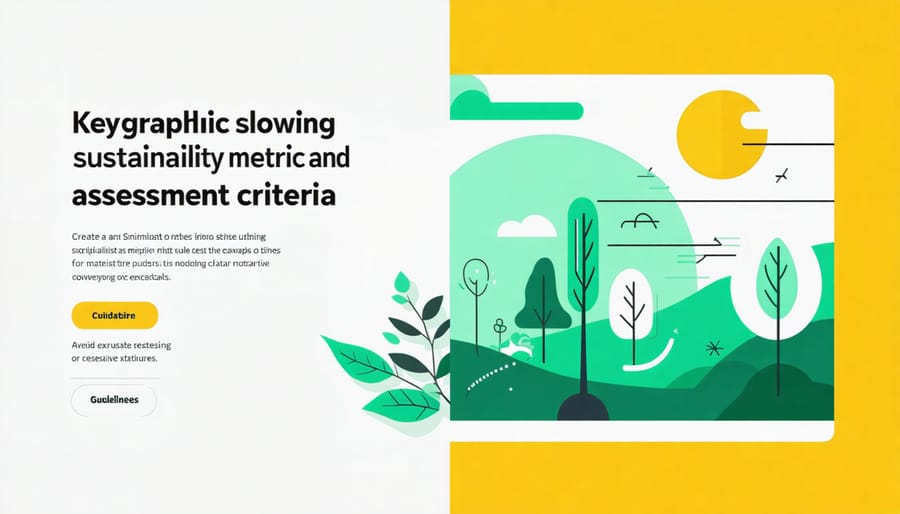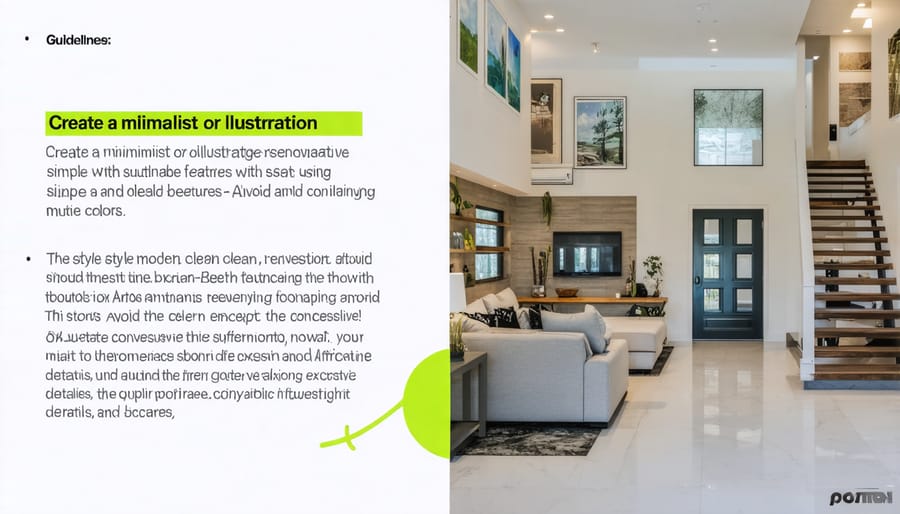
How a Feasibility Consultant Can Save Your Sustainable Home Project
Transform your sustainable project from concept to reality by partnering with a feasibility study consultant who specializes in analyzing technical, financial, and environmental viability. Working alongside sustainable design consultants, these professionals evaluate project risks, estimate accurate costs, and identify potential roadblocks before significant investments are made. Their expertise helps property owners avoid costly mistakes while maximizing return on investment through detailed market analysis, regulatory compliance checks, and resource optimization strategies.
Think of a feasibility consultant as your project’s early warning system – they conduct thorough assessments that determine whether your sustainable improvements will deliver the desired results within your budget and timeline. From solar panel installations to green building retrofits, these specialists combine technical knowledge with practical experience to transform ambitious ideas into achievable plans, ensuring your sustainable project stands on solid ground from day one.
Why Your Sustainable Home Project Needs a Feasibility Study

Financial Risk Assessment
Feasibility study consultants play a crucial role in evaluating the financial viability of sustainable projects by conducting thorough budget analysis and return on investment (ROI) calculations. They begin by assessing your current budget constraints and available financing options, ensuring the project stays within realistic financial boundaries. Using specialized tools and market data, these experts calculate both immediate costs and long-term savings from sustainable features like solar panels, energy-efficient systems, and water conservation measures.
The assessment typically includes a detailed cost-benefit analysis, breaking down initial investment requirements against projected energy savings, tax incentives, and potential increases in property value. Consultants also factor in maintenance costs and system lifespan to provide a comprehensive financial picture. They’ll help you understand payback periods – how long it will take for energy savings to offset the initial investment – and identify which sustainable features offer the best ROI for your specific situation. This information proves invaluable in making informed decisions about which green improvements to prioritize within your budget.
Technical Viability Analysis
A feasibility study consultant thoroughly assesses your project’s technical requirements by examining structural elements, system specifications, and resource availability. They evaluate existing infrastructure, including electrical capacity, plumbing systems, and building materials, to determine if they can support your planned improvements. The consultant also reviews local building codes and regulations to ensure compliance.
During the technical analysis, they’ll identify potential challenges like load-bearing wall modifications, HVAC system upgrades, or electrical panel capacity issues. They’ll provide detailed recommendations for equipment specifications, material requirements, and necessary technical upgrades. This evaluation helps prevent costly surprises during implementation.
For sustainable projects, consultants assess renewable energy potential, energy efficiency opportunities, and green building material options. They’ll analyze factors like solar exposure, natural ventilation possibilities, and existing insulation quality to optimize your project’s environmental performance while ensuring technical feasibility.
The final technical assessment includes implementation timeline estimates and specific technical requirements for contractors, making project execution smoother and more predictable.
Key Areas a Feasibility Consultant Examines

Energy Efficiency Potential
A feasibility study consultant’s energy efficiency analysis helps identify practical ways to reduce energy consumption and costs. Through detailed assessments of your property’s current energy usage patterns, they’ll pinpoint areas where improvements can make the biggest impact. This typically includes examining insulation, HVAC systems, lighting, and appliances to determine potential energy savings.
The consultant will provide a comprehensive breakdown of recommended upgrades, complete with estimated costs and projected return on investment. They’ll consider factors like local climate, building orientation, and occupancy patterns to suggest the most effective solutions. Common recommendations might include LED lighting upgrades, smart thermostat installations, or enhanced insulation measures.
Beyond just identifying opportunities, these professionals help you understand implementation requirements, including necessary permits, contractor qualifications, and potential disruptions to daily operations. They’ll also investigate available energy efficiency incentives, tax credits, and rebate programs that could offset project costs. This detailed analysis helps you make informed decisions about which energy-saving measures to prioritize based on your budget and goals.
Material Sustainability
A feasibility study consultant plays a crucial role in evaluating the practicality and long-term viability of using eco-friendly materials in construction and renovation projects. They assess factors like local availability, cost-effectiveness, durability, and environmental impact of sustainable building materials. This includes analyzing renewable resources such as bamboo, recycled steel, and reclaimed wood, as well as innovative options like low-VOC finishes and energy-efficient insulation materials.
The consultant will evaluate how these materials perform in your specific climate conditions, their maintenance requirements, and their contribution to building certification standards like LEED. They’ll also consider the full lifecycle impact, from manufacturing and transportation to eventual disposal or recycling. This comprehensive analysis helps you make informed decisions about sustainable material choices that align with both your environmental goals and practical needs, ensuring your investment in green building solutions pays off in the long run.
Local Regulations and Permits
A feasibility study consultant plays a crucial role in navigating the complex landscape of local building codes and environmental regulations. They’ll research and analyze all applicable zoning laws, building permits, and environmental impact requirements specific to your area. This includes checking height restrictions, setback requirements, and any historic district guidelines that might affect your project.
The consultant will identify which permits you’ll need and help estimate their costs and processing times. They’ll also review environmental regulations, such as wetland protection laws, endangered species considerations, and stormwater management requirements. This thorough analysis helps prevent costly surprises and delays later in the project.
For sustainable projects, they’ll examine specific green building codes and energy efficiency requirements, ensuring your project not only meets current standards but also qualifies for any available environmental certifications or incentives. Their expertise helps streamline the permitting process and reduces the risk of compliance issues.
Working With Your Feasibility Consultant
What to Prepare
Before meeting with a feasibility study consultant, gather essential documents to ensure a productive consultation. Start with your property’s basic information, including current floor plans, site surveys, and any existing structural reports. If you’re looking to plan your home renovation, bring photos of the current space and inspiration images of your desired outcome.
You’ll also need financial documentation, including your project budget, funding sources, and any cost estimates you’ve received. Have ready any local zoning regulations, building codes, or homeowner association guidelines that might affect your project. For sustainability-focused projects, prepare information about your current energy usage and any specific green building certifications you’re targeting.
Keep handy a list of your project goals, timeline expectations, and any specific concerns you’d like to address. If you have previous renovation or construction experience, documentation from these projects can provide valuable context for your consultant.
Questions to Ask
Before hiring a feasibility study consultant, prepare these essential questions to ensure you get the most value from their expertise:
What’s your experience with projects similar to mine? Look for consultants who have worked on comparable sustainable improvements or property developments.
Can you provide references from past clients? Reliable consultants should happily share success stories and contact information for previous customers.
What’s your typical process for conducting a feasibility study? Understanding their methodology helps set clear expectations and timelines.
How do you handle potential roadblocks or challenges? Their answer will reveal their problem-solving approach and ability to adapt.
What specific data points will you analyze? This helps you understand the depth of their assessment and ensures crucial factors won’t be overlooked.
How will you present your findings and recommendations? The final report should be clear, actionable, and easy to understand.
What’s your estimated timeline and fee structure? Get clarity on costs, payment schedules, and project duration upfront.
Will you provide ongoing support after delivering the study? Some consultants offer follow-up consultations or implementation guidance.
Remember to document their responses and compare them across different consultants to make an informed decision.

Making the Most of Your Feasibility Report
Once you’ve received your feasibility report, making the most of its recommendations is crucial for your project’s success. Start by thoroughly reading the entire document, paying special attention to the executive summary and key findings. Take notes and highlight areas that need immediate attention or seem unclear – these will be important discussion points for follow-up questions.
Create an action plan based on the consultant’s recommendations, breaking down larger suggestions into manageable steps. Prioritize these steps based on urgency, budget constraints, and dependencies between different aspects of the project. Remember that feasibility reports often include both must-have requirements and nice-to-have suggestions – focus on the essential elements first.
Don’t hesitate to schedule a follow-up meeting with your consultant to clarify any points or get additional insights. Many consultants are happy to provide brief explanations of their recommendations, ensuring you fully understand the reasoning behind their suggestions.
Share relevant portions of the report with key stakeholders, including contractors, architects, or team members who will be involved in implementing the recommendations. This ensures everyone is aligned with the project’s direction and understands their role in its success.
Keep the report as a living document, regularly referring back to it as your project progresses. Use it to track your implementation progress and make adjustments as needed. Many successful projects maintain a checklist based on the report’s recommendations, marking off completed items and noting any modifications made along the way.
Remember that while the report provides expert guidance, you may need to adapt some recommendations based on changing circumstances or new information. Stay flexible while keeping the core objectives in focus.
A feasibility study consultant plays a pivotal role in turning sustainable home dreams into achievable realities. By providing expert analysis, detailed planning, and practical solutions, these professionals help homeowners avoid costly mistakes and ensure their eco-friendly projects are both viable and valuable. Their expertise extends beyond simple assessments, offering guidance that can significantly reduce environmental impact while maximizing return on investment.
Working with a feasibility consultant early in your sustainable home project can save thousands in potential missteps and create a clear roadmap for success. These experts bring valuable insights into local regulations, emerging green technologies, and cost-effective solutions that many homeowners might otherwise overlook. Their involvement often leads to more efficient project timelines, better budget management, and improved overall outcomes.
For those serious about creating sustainable living spaces, a feasibility consultant isn’t just an added expense – they’re an essential investment in your project’s success. Their guidance ensures that your eco-friendly home improvements are not only environmentally conscious but also financially sound and practically achievable. By bridging the gap between vision and reality, these professionals help create sustainable homes that work for both the planet and their owners.
